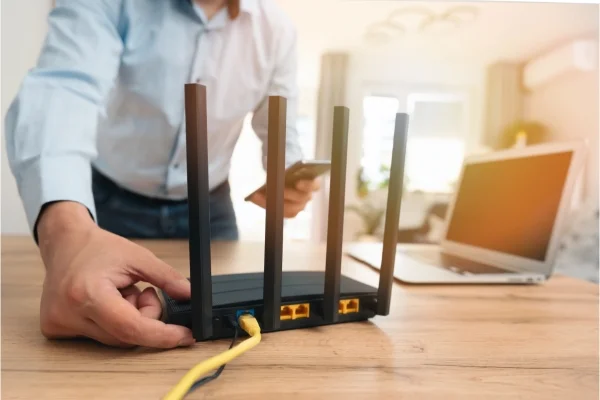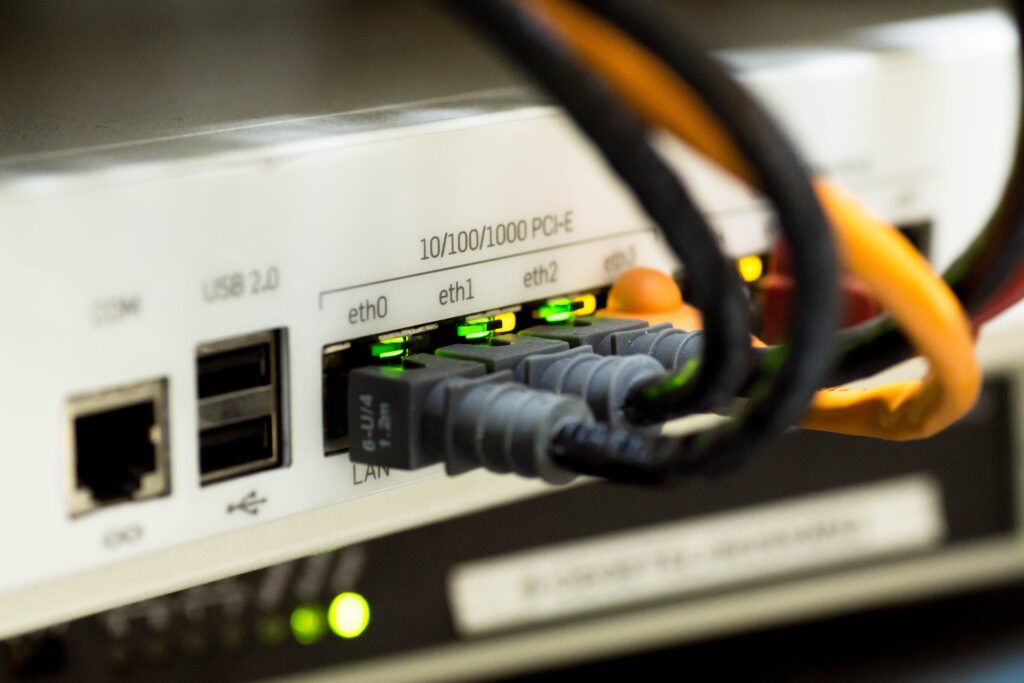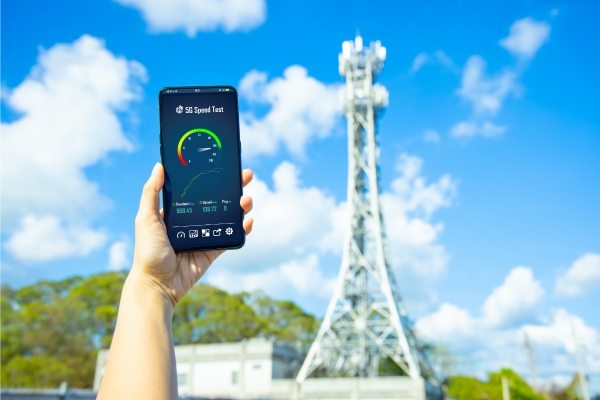How to give your VPN the speed boost it needs?
Are your favorite shows buffering endlessly? Is your online gaming session freezing at the worst moments? Is uploading a simple file taking forever? Most likely, your VPN is to blame.
Virtual Private Networks are invaluable tools for ensuring our online privacy and security.
However, they do introduce an unwelcome guest-latency, slowing down our internet speed.
The good news is, you’re not condemned to this snail-pace connection.
Here at Debugbar, we’ve worked tirelessly to compile a series of tips and tricks to fire up your VPN’s speed. So buckle up because we’re about to take your VPN from slow lane cruising to the fast track!
Here’s the essential tips:
- Check and, if needed, reset your internet connection
- Choose a nearby VPN server
- Avoid crowded VPN servers
- Experiment with a different VPN protocol
- Utilize VPN split tunneling for specific sites
- Opt for a wired over a Wi-Fi connection
- Close unnecessary background apps
- Reboot your modem and router
- Temporarily disable antivirus software or firewalls
- Consider switching your VPN provider (ExpressVPN, NordVPN, CyberGhost…)
- Restart your computer
- Stay on top of updates
- Try using your VPN from another location
- Upgrade to more efficient devices
But let’s discover how to speed up your VPN more precisely!
Why does a VPN slow down internet speed?
At its core, the cause is latency created when data requests travel through encrypted tunnels.
This latency is imperceptible with the best VPNs on the market, but can be very annoying with others. On average, the speed loss is around 15% MBPS. But in reality it varies based on several factors. Let’s see which ones.

Factors that influence VPN speed
Ever wondered why your VPN isn’t as fast as you expect? Allow us to break down the elements impacting your speed:
- VPN server routing: The pathway your VPN provider uses to relay data affects your speed. This is why some VPNs might be quicker than others.
- Network configuration: Your VPN protocols and network setup have a significant role in your connection speed.
- Server location: Distance to the server can cause latency, slowing down your VPN’s pace.
- Type of encryption: Strong encryption like AES-256 secures your data but can slow things down due to its high processing power requirements. On the other hand, lighter encryptions like AES-128 are faster but offer less security.
- Server load: The number of users on a server can affect its speed – more users mean less speed for everyone. Free or budget VPNs commonly struggle with this due to low server density.
- Network congestion: When too many data requests collide on a limited-bandwidth network, traffic jams happen, just like on a real highway at peak time – resulting ina slower VPN connection.
Your roadmap: 14 Tips to supercharge your VPN speed
1. Start at home: Check your internet connection
Spawned from the age-old advice of turning it off and on again, the first step to speeding up your VPN is by checking up on your internet connection.
Look for those tell-tale blinking modem and router lights. Make sure they’re in sync with your Internet Service Provider’s (ISP) guidelines.
Still facing issues? Run a third-party speed test with and without your VPN active. This can reveal whether the problem resides with your VPN or lies elsewhere in your connection.

2. Close to home: Try to connect to a nearby VPN server
Long distance relationships can be hard, not just for you, but also for your server. The further you are from your chosen server, the slower is the connection speed due to increased latency.
So, it’s wise to select a VPN server closer to your physical location. But don’t stop at one; try out different nearby servers to find out the fastest option for you.
3. Beat the crowd: Switch to a less crowded VPN server
Ever been at a concert with bad cell reception? That’s what a crowded server can do to your VPN speed. If you’re stuck on slow speeds, it might be time to jump ship to a less crowded ship.
4. Play with options: Try a different VPN protocol
Different people have different tastes, and so does your VPN. When it comes to speed, not all VPN protocols are created equal. Explore with diverse protocols like OpenVPN, WireGuard, and IKEv2 to find the one that serves you the best speed.
5. Divide and conquer: Use VPN split tunneling
The VPN split tunneling feature is akin to taking shortcuts during a road trip; it helps you reach faster by bypassing the VPN tunnel for specific websites using your actual IP.
6. Get wired: Opt for a wired connection
Wi-Fi is convenient, but can also be unreliable at times. A good old Ethernet cable connecting your device directly to the modem or router can potentially boost your download speeds and provide a more stable connection.

7. Clean house: Close background apps
An unnecessary background app can be bandwidth hogs, reducing the data packets available for your VPN connection. So make sure you close those apps when not in use.
8. Reset to refresh: Reboot your modem and router
Just like you feel rejuvenated after a good night’s sleep, your modem and router can also benefit from a little downtime. Rebooting these devices can resolve connectivity issues and restore their normal functioning.
9. Lower your guard temporarily: Disable security apps
While antivirus programs and firewalls are essential for system security, they can interfere with VPN speed. Try temporarily disabling them to see if this improves your connection speed. Remember to always turn them back on afterwards!
10. Change is good: Change your VPN provider (NordVPN, ExpressVPN…)
If all else fails, it might be time to seek greener pastures. Changing your VPN provider to one with faster servers, better bandwidth throttling prevention, or superior compatibility with your device could be the ticket to a speedier VPN connection.
11. A fresh start: Restart your computer
Much like rebooting your modem and router, giving your computer a fresh start by restarting it can help resolve software issues that might be affecting your VPN speed.
12. Keep up-to-date: Install updates
Often overlooked, regular device updates not only ensure you have the latest features, but also often include performance improvements and bug fixes which could enhance the speed of your VPN.
13. Change your scenery: Test your connection from a different location
If your internet service provider (ISP) is the issue, testing your VPN from a different location, say a coffee shop or friend’s house, can help identify if this is the case.

14. Upgrade your gear: Switch to a more powerful device
Last but not least, the device you use could be the bottleneck in your VPN speed. Older routers, network-attached storage devices, and early models of Android and iOS devices may not provide high speeds due to encryption overhead.
Opting for a device with a more efficient processor could resolve this issue.
Race recap: Speed up your VPN summarized
VPNs are really useful to ensure your online privacy but they can really slow down your internet speed.
Understanding what slows down your VPN and taking the right steps to tackle it can make a world of difference in your online experience. Here’s a quick rundown of key takeaways for boosting your VPN speed:
- Check your internet connection: Make sure your internet speed is up to par by running a speed test without the VPN active.
- Choose nearby VPN servers: Opt for a server that’s physically closer to you to reduce latency.
- Switch to less crowded servers: Try to avoid crowded servers as they can slow down your connection speed.
- Try a different VPN protocol: Experiment with protocols like OpenVPN, WireGuard, and IKEv2 to see which offers better speed.
- Use VPN split tunneling: This feature allows certain websites to bypass the VPN, potentially increasing speed.
- Opt for a wired connection: Ethernet connections can provide more reliable and potentially faster speeds than Wi-Fi.
- Close background applications: An unnecessary background app can consume bandwidth and slow down your VPN.
- Reboot your modem and router: Similar to rebooting a computer, this can help solve some connectivity issues.
- Temporarily disable security apps: Antivirus software and firewalls can interfere with VPN speed, so disabling them temporarily could help.
- Switch your VPN provider: If you’ve tried everything else, consider switching to a provider known for faster servers and better bandwidth management.
- Restart your computer: Like rebooting your modem or router, this can resolve software issues affecting VPN speed.
- Install device updates: Regular updates can include performance improvements and bug fixes that could enhance VPN speed.
- Test your VPN from a different location: If your ISP is the problem, testing from another location can help you determine if this is the case.
- Upgrade your device: Older hardware may struggle with VPN speeds, so upgrading to a newer, more powerful device might help.
Let’s face it – slow-speed VPNs can be frustrating. But take heart because with the right strategies, you can say goodbye to buffering and hello to an ultra-fast, smooth browsing experience. So go ahead, give these tips a try and enjoy the ride in the fast lane!